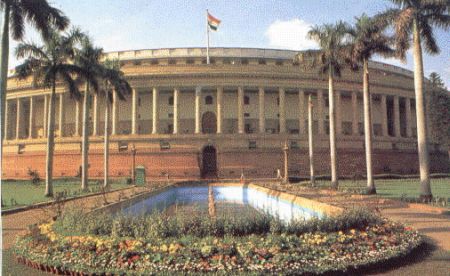
India has a system of democracy that every Indian knows, but how many of our huge population understand the true meaning of the term democracy? Even those who know its meaning, how many of them really take part in the democratic processes (contesting and voting in elections)? It is not that our people are totally ignorant about democracy and its concept.
Of course, every one knows that democracy means freedom to give vote and freedom from forced work and also freedom to do any thing like destroying the public property, spitting, shitting or urinating anywhere, abusing to any one etc etc. There is a difference between knowing the democracy itself and knowing how to conduct it properly.
One may know the good taste of butter paneer but may not know the process to cook it. Simply knowing some thing may not serve the purpose unless it is also known that how to get that thing done.
We Indians definitely know what is the democracy but we lack the skill to create the conditions to flourish it. Those, who little understand and know it, keep themselves away from contributing in its further development (I used the term-little understand – because even those who are champion of the democratic concepts, are unable to find the solution of maladies of Indian democracy).
The twin pillars of democracy are education and justice Education is required to understand the basic principles, elements, and requirements of democracy; and justice is necessary to create the conditions of equality, fair treatment, freedom from fear and exploitation etc. Unless people are educated, they may be deceived, misguided or enticed away by the politicians in their favour to vote for them.
Only good education can create an ideal condition for the development of democracy. The people who are well educated are difficult to be misguided by the politicians and are more inclined to caste their vote on the basis of ideology and the quality of the candidates in elections. Among Indian voters, most of them are those who are either least educated or semi literates and economically weaker.
They are targeted and easily misguided, deceived and bribed by the politicians in their favour during the elections. Unless there is a very strong reason to react, these voters are normally carried away by the candidates and parties by using their money power. Since the number of this type of voters is more, they play a deciding role in the elections.
The educated and well to do voters, who have the good understanding of the democratic process and its purpose, are less in number and their vote may not be as deciding as that of the voters with less educational background and weak economic condition due to their big number.
This condition creates a disappointment among the educated voters and therefore they do not take much interest in the election process, and it has been observed that they hardly go for voting during the elections. Justice is the another basic requirement for the development of democracy.
Unless the people are free from fear, favor, and want, they may not be able to caste their vote in objective manner and may be influenced by the party or the candidate who is able to extract their support by different means.
In India, there is a large number of uneducated, least educated or semi-educated people. The education system is such that it does not create interest in the people of rural areas and economically weaker classes of people to go to the school. Even those who are educated from the educational institutions in sub urban and rural areas or some times even in urban areas, do not have the quality. Education sector is facing the neglect from the government due to the influence of the undemocratic and selfish interests who do not want to empower the common masses in order to maintain their importance and influence.
The recruitment, in the government aided universities and colleges, of the substandard people on the basis of their connections has turned the education system into a fake system where qulity is highly compromised due to incompetence and favouratism. If the people will not get a good education, how can they be able to establish a strong foundation of the democratic society? Justice condition in India is pitiable.
Economic inequality, bureaucratic high handedness, political and official corruption, judicial apathy and so on, create unjust conditions for the unprivileged people who feel helpless in the system where discrimination has become a rule.
In these conditions the democratic system is highly paralyzed and can not be able to produce the desired results.



